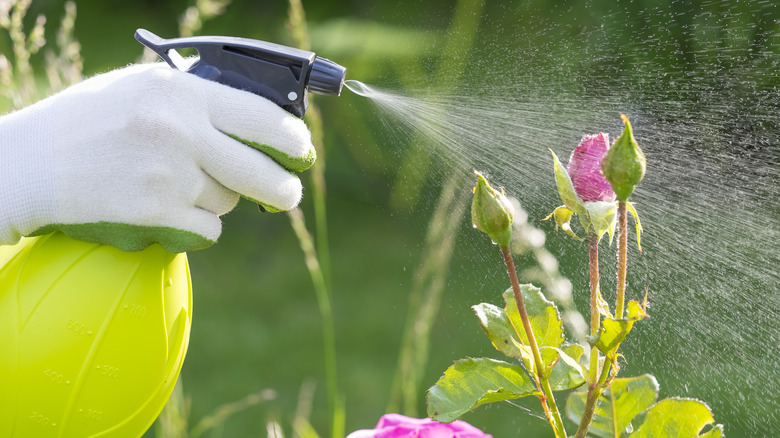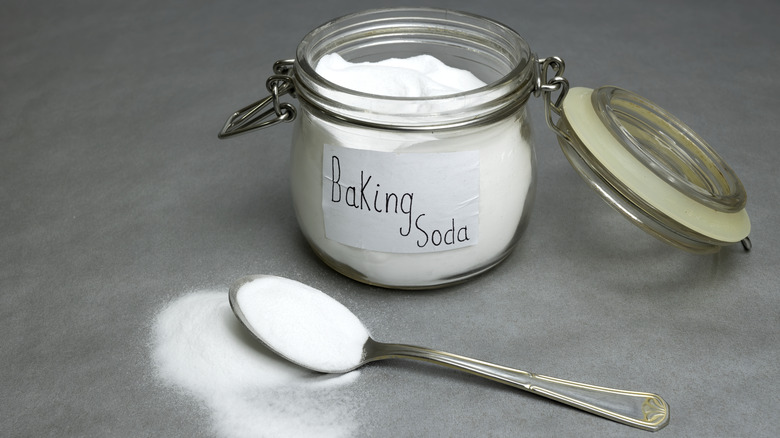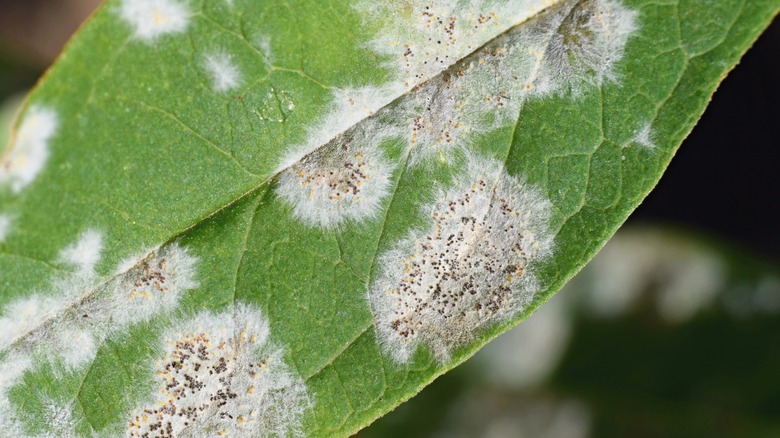Why Gardeners Are Adding Baking Soda To Their DIY Gnat Spray (And Does It Work?)
It is common for people to use neem oil in the garden to make DIY sprays to ward off pests, including gnats. Additionally, some garden blogs suggest that baking soda itself, especially when combined with vinegar and/or dish soap, can kill or repel gnats. According to the Research Journal of Pharmaceutical, Biological and Chemical Sciences, baking soda has pesticidal properties and can be used to repel insects. Gnats, however, are very tricky creatures, and there are very few natural mechanisms which can keep them at bay long-term. If you are fighting a serious gnat infestation, look to professional help from an exterminator.
If you are searching for a way to get rid of a few pesky gnats, or if you are tackling problems with your garden's overall health, baking soda can be a lifesaver. While you might be hesitant to use baking soda in your garden because of the sodium it contains, the sodium bicarbonate will be very diluted and shouldn't harm the soil, as you'll spray it on the plant itself. With just a bit of neem oil, water, and baking soda, you can combat small gnat infestations and fight moldy growths like powdery mildew at the same time.
How to use baking soda in your DIY gnat spray
Many gardeners use neem oil because it is a natural pesticide that contains azadirachtin, an insecticide that can repel insects and affect their development, making it a surefire way to keep pesky gnats away. Neem oil and baking soda, when mixed together, make a powerful insect repellent as well as a lethal match for any powdery mildew that may also be plaguing your plants.
To make this multipurpose gardening and pest control spray, start by dissolving 1 tablespoon of baking soda into a gallon of water. Now, you can add between 1 and 2 ½ tablespoons of your neem oil and a few drops of dish liquid to the solution. This can then be transferred to a spray bottle and spritzed onto plants that are having trouble with fungus or annoying gnats. If your normal DIY spray uses a different horticultural oil, the baking soda should still work as expected. With just this one spray, you can help various plants in your garden struggling with insects or powdery mildew.
Why baking soda is effective against powdery mildew
Some university extensions suggest that sodium bicarbonate is capable of controlling powdery mildew, but only when it's combined with a horticultural oil. It's believed that the oil helps the baking soda to stick to the plant and fight the fungus. The sodium bicarbonate acts as a fungicide, while your neem oil works to get rid of gnats. Some research has shown that this formula is effective against the fungus on roses, but it may work differently when applied to other plants and depending on environmental conditions. This is why this method is still considered to be experimental and could yield varying results.
A 1997 study also found that various bicarbonates, including sodium bicarbonate, were capable of inhibiting the growth of a different fungus, Botrytis cinerea (sometimes known as gray mold). Baking soda makes a great addition to any multi-purpose garden spray, especially for fighting off insects and mold at the same time.



